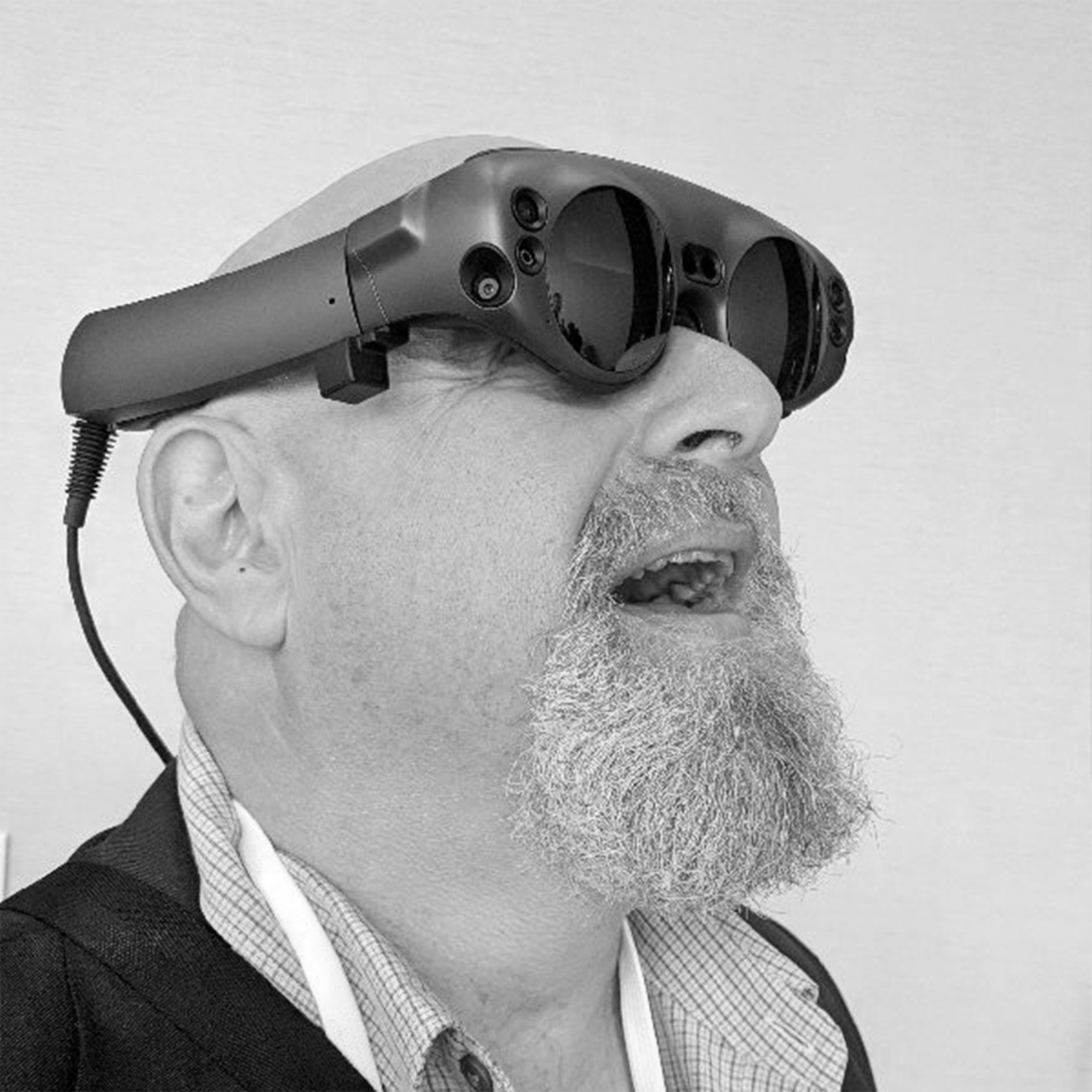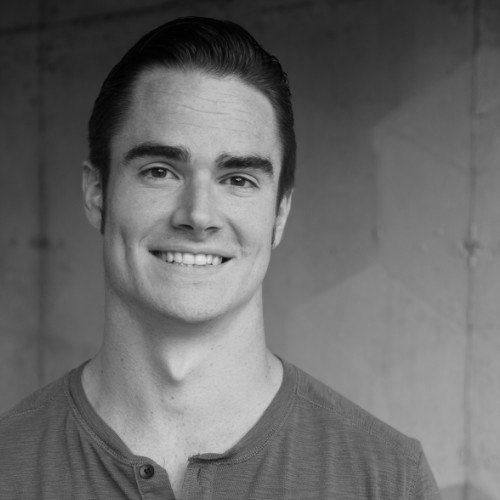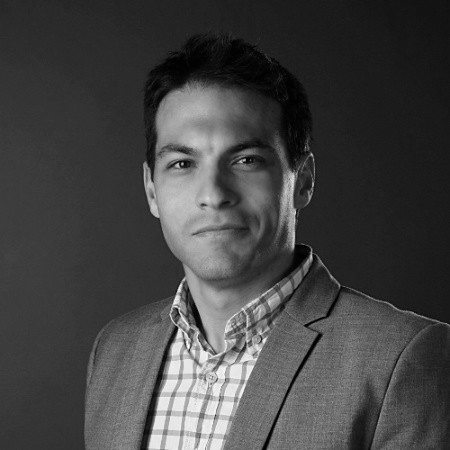In between your regularly-scheduled XR for Businesses episodes, Alan has a brief update and recap of his recent trip to the Ritossa Family Office Summit in Dubai
Hey there, it’s Alan Smithson with the XR for Business Podcast. And today’s episode is a very special recap of a conference that I just spent two days at, called the Ritossa Family Office Summit. This is a gathering of elite family offices, a total of 600 prominent business owners, sheiks, royal families, private investment companies, and international business people, getting together to discuss the future of investing. Now, to put it in perspective, the people that attend this represent about $4.5-trillion in investable wealth. And this conference is the world’s largest and most exclusive gathering of elite family office decision makers.
This year’s topic was “East Meets West”, and the theme of Dubai summit will act as a bridge between Middle East families and their European, Asian, US, and Latin American counterparts. This was an amazing experience for us. We were there as a vendor. We were the only company there bringing virtual and augmented reality to these people. And the interest level around virtual and augmented reality was insane. People were asking all sorts of questions, “How long is this going to take? What is the roadmap now? Who’s using it? What companies are doing it? How can we involve our company portfolios in this?”
And really, we came at this from a training standpoint. Virtual and augmented reality training is the most effective, efficient training solutions we’ve ever created as humans. Everything from being able to track where the user’s looking, to their biometrics, their heart rate, all of these things combined create what we are hoping will be the future of all education and training. And at MetaVRse, what we’re really focusing on now is building out a platform marketplace to help businesses navigate the technology, figure out what technology works best for the needs of their employees.
Because as we enter into this kind of age of exponential growth, what we’re seeing now is a massive change in how we work. Over the next three years alone, IBM estimates that over 120 million people will need to be reskilled and retrained due to AI and automation. And from a strictly monetizable standpoint, PWC — the global conglomerate — they’ve just earmarked $3-billion to reskill, upskill, and retrain their staff.
AI and robotics and automation are coming faster than we can possibly think about. And virtual and augmented reality give us this kind of unique perspective as to how we can train people in a way that is easier, faster, more efficient. And I think we’re going to need that as we enter into exponential growth.
Back to the Dubai summit. First of all, I want to say a huge thank you to Anthony Ritossa — the host of the summit — who brought together these incredible people. It was under the patronage of His Highness, Sheikh Ahmed Al Maktoum, the ruler and prime minister of Dubai, and the ruling family. And it was really amazing to meet their chief investment officer, Mohammed Al Ali — who actually today is being knighted in London — and he is the CEO and advisor of their International Investments Enterprise. We met with Adam, the judge from the private office of His Highness, Sheikh Hamdan bin Mohammed Al Nahyan. We met with Faris, and his team from the office of Sheikh Sultan Bin Abdullah Al Qasimi.Qasimi.
And all of these sheikhs represent family offices from different parts of the UAE. You have Dubai, you have Sharjah, you have Abu Dhabi, and all of these different emirates. There’s investments where they’re looking not just to invest in oil and gas and these things, they’re really looking towards investing in world changing things. Education is on the top of mind of everybody right now because as an investor, if you own several companies, you realize already that there is a skills shortage.
In America alone, there’s about a 6 million person skills shortage in skilled trades. So things like plumbing, HVAC, electrical, all of these things. Kids, it turns out, don’t want to be in these types of things anymore. They really want to be YouTube influencers. And actually, a study was recently released where they studied 3,000 kids in America and 3,000 kids in China. And they told them, “Just simply rank these seven jobs.” And the seven jobs were– in America, the number one job was YouTube influencer. The number seven job was astronaut scientist. And in China, the list was actually completely flipped.
So if you look at our priorization of learning, it’s more important for people to be on social media than it is to learn truly transformational skillsets, and I think we need to take what we’re learning with virtual and augmented reality — and even things in entertainment — and apply these to our new learning procedures. If you look at education as competing with Hollywood movies, blockbuster AAA video games, and social media, these have teams of people designed around just making these things addictive.
Netflix has AI algorithms that give you better shows to watch. What we need to do is really take all of this knowledge of AI and machine learning, and apply it to learning. And that’s really what we’re hoping to do with MetaVRse. Some of the other people that we met this year at the Ritossa summit were just incredible. Sheila Driscoll, the founder of Driscoll– or I guess founding family of Driscoll’s Berries. I don’t know if you’ve eaten their raspberries, but I have. They’re delicious. But she was on a panel talking about giving back, and philanthropy.
And all of these people are looking at investments that not only serve their wallet — because once you have enough money, you have enough money, you don’t need that — what they’re looking for is investments that make positive change in the world. Some of the panel discussions were around artificial intelligence and machine based learning. Why are people invested in it? And what we realized is that there’s a lot of misunderstanding going on with that. And one of these things are that people just don’t understand. So they need to– there’s a lot of education that needs to be done around. What are these technologies? How do they– how are they interrelated? AI, and machine learning, and computer vision, and virtual and augmented reality, and mixed reality, and IOT sensors, and cloud computing, and edge computing, and quantum computers. All of these things are interconnected, they’re intertwined. And we’re seeing a convergence of technologies.
And really, being able to talk to these philanthropy arms of these massive investment companies, you start to realize that they’re getting bombarded with people in blockchain, and cryptocoins, and these types of things. There’s tons of presentations on investible digital assets. “What’s to come in 2019,” with Nick Ayton from Chainstarter Ventures. One of the other things was interactive roundtables, and art as an investment asset class, building global businesses in partnership with family offices, investing in blockchain, machine learning, and artificial intelligence.
I went to that one — the roundtable on artificial intelligence — and the question came up around the table, was “When will artificial intelligence replace bankers?” And everybody had their different answers: 2030, 2040. And the real answer that I gave is, “as soon as possible.”. And it’s not that people don’t want bankers, it’s that as soon as you have an algorithm that takes out the emotion of banking and does the job more efficiently than a human, this is where AI becomes a replacement for what we do. And if you look at how many jobs are in the financial services sector, and how many jobs are already changing around quants and around artificial intelligence algorithms, it’s really going to be revolutionary.
Some of the other things that we saw there at the Rotossa Summit, this one really got me, I love this one. This is “Buckle your seat belt. What options do families have for insurance against market volatility?” Having President Trump and China at this trade war leaves a lot of uncertainty for the world. And we are in a time of volatile markets, and really being able to invest financially secure investments against real estate or against other assets. It was really a great eye opener on what are the insurances that investors are taking, to make sure that market volatility does not affect their returns.
One of the panel sessions was on blockchain and business delivering real world benefits. And we’re talking about how blockchain can be used for medical records, it can be used for education records. In fact, one of the things that we’re building as part of our platform marketplace is a blockchain component that allows you to have an immutable transcript of your record. So if you take a course at work, or you take a course on Coursera, or you take a degree at Harvard, or a microdegree in Udacity, these can be locked into a blockchain and really secure there. So that’s a great use case there.
I know it’s being used a lot in shipping, in logistics, being able to track where your food comes from, and where everything is sourced from ethically. One of the the panels that I really, really enjoyed was “Philanthropy, impact, and social responsibility investment opportunities.” And this one was big for me, because on the panel was Justin Rockefeller from the Rockefeller family. And here’s a descendant of one of the wealthiest people on the planet to ever live in humanity, and talking about how their family wealth is being preserved and reinvested, and how they have a moral obligation to invest in philanthropy and impact and social investments.
And it really resonated with me, because everybody there has the ability to fund all sorts of philanthropy efforts. And it was really wonderful to understand how these people invest, how they think, and more so, what is important to them from a standpoint of their long term visions and their long term dynasties, I guess is the right word. So what is it about their dynasty that they want to be remembered by and listen, making a lot of money is easy, easier for people that have it. Making more money is easy, but making money while doing good in the world, I think is going to be the new way of doing business. And I’m really excited for it.
One of the things, my purpose in life is to inspire and educate future leaders to think and act in a socially, economically, and environmentally sustainable way. And by being networked with these wonderful people at the Ritossa Summit, and having deep conversations around the ways we can use virtual/augmented/mixed reality technologies combined with the other technologies — AI, blockchain — combining these to serve humanity and especially from our side, from the eyes of learning, and really creating education. I’m going to throw this out here, because our mission — and we’ll be announcing this outside of the podcast soon — but our mission at MetaVRse is to democratize education globally by 2040, using spatial technologies.
And we believe that as these technologies become more mature and more ubiquitous, the future of learning isn’t going to be looking at a YouTube screen. It’s going to be looking at a YouTube screen, it’s can be listening to a podcast, it’s going to be doing something in spatial computing. All of it combines to create a learning environment, where each individual learner can learn the best possible way for them. And being able to incorporate data like eye tracking and biometrics and head pose and hand tracking, we’ll be able to deliver learning at a scale and efficiency never, ever thought of in human history. So we’re really excited about building that future.
With that, I want to just say a huge thank you again to Vanessa Eriksson from the Ritossa Summit, and also to Sir Anthony Ritossa for the invite to this incredible gathering. And I can’t wait to the next one, in Riyadh. So thank you again. And thank you guys for listening. This has been the XR for Business Podcast with your host, Alan Smithson. Oh, one more thing, if you haven’t subscribed to the podcast, hit the subscribe button, so you get all the updates and also you can sign up for our email newsletter, we email out once a week some news on the industry, at xrforbusiness.io.

How will the convergence of 5G and AR and artificial intelligence lead to the creation of experiences that no one’s ever imagined? Join Forbes...

We talk a lot about the business use cases of XR on this podcast, but any good business comes with a great fitness plan...

Verizon’s XR development lead, TJ Vitolo, dreams of a day where he can download an entire TV series in an instant, or visualize info...